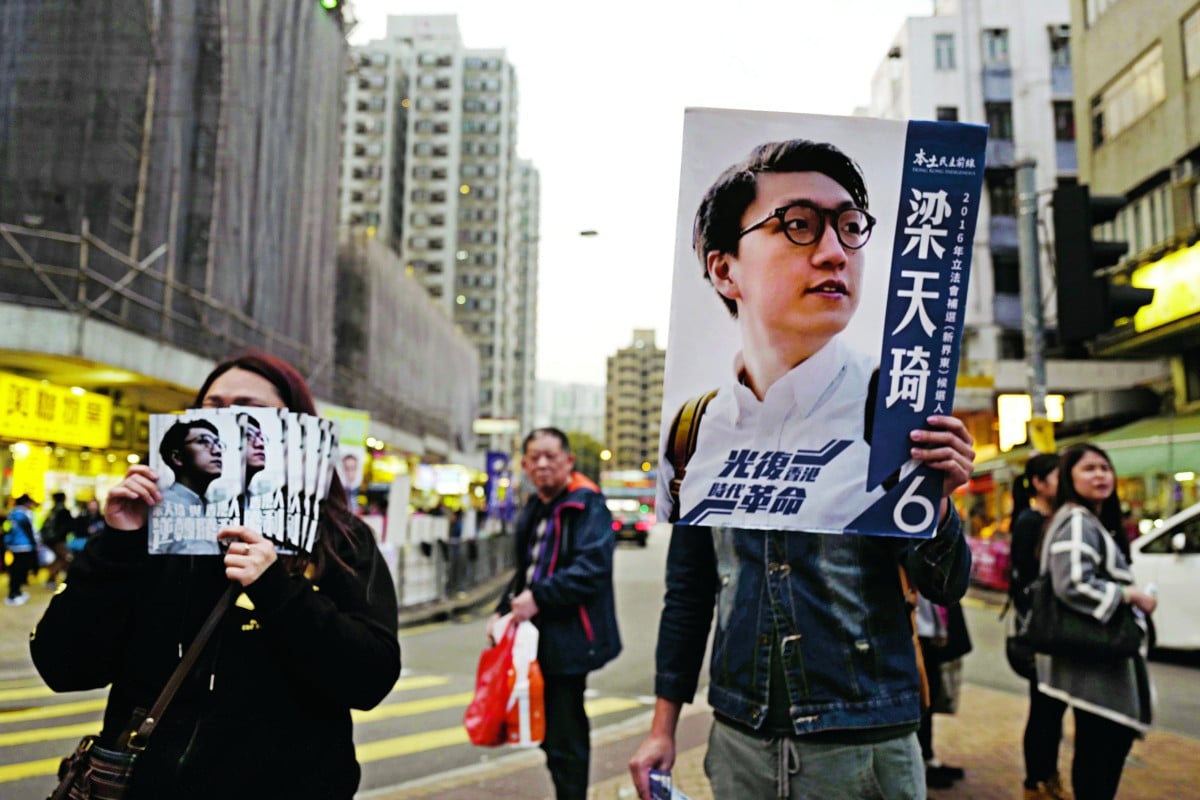
Hey, Edward Leung, can Localists live up to their promises in a civilised way?
More than 66,000 voters believe that Edward Leung should have a voice in Legco. So what’s next for the Hong Kong Indigenous party?
 Edward Leung did well in the by-election, securing 15.3 per cent of the votes. A victory would have made him the city’s youngest lawmaker, but he lost to Civic Party’s Alvin Yeung Ngok-kiu.
Edward Leung did well in the by-election, securing 15.3 per cent of the votes. A victory would have made him the city’s youngest lawmaker, but he lost to Civic Party’s Alvin Yeung Ngok-kiu.For a political party that has been associated with rioting, disrupting social order, and attacking police officers, getting 60,000 votes in a by-election would seem like a pipedream. Yet Edward Leung Tin-kei from Hong Kong Indigenous managed to do just that in the recent New Territories East by-election, which had been triggered by the resignation of former Legco member Ronny Tong Ka-wah.
The nativist group is accused of aggravating the Mong Kok “Fishball Revolution” during Chinese New Year, and Leung himself is currently facing prosecution. However, neither the possibility of an imminent jail term, nor the lack of a concrete agenda or relevant political experience, was enough to scare voters away from the localist candidate.
In a city where throwing bananas at government officials would cause public outrage a few years ago, politics is becoming much more radical at an accelerating pace. Yet I had a few concerns when Leung declared that Hong Kong Indigenous would now become the third dominating power in mainstream politics.
Nativist groups have largely championed so-called “resistance” movements. While Leung admitted quite proudly that the protesters have “no bottom line”, there is in fact a fine line between bravery and bravado. Bravery is pursuing universal values such as democracy and freedom in the face of adversity; bravado is cornering unarmed parallel traders and innocent residents under the name of “liberating” Tuen Mun. Bravery is admitting defeat and mismanagement; bravado is tarnishing the international reputation of Hong Kong and blaming it on government inefficiency. Bravery is acknowledging the political framework of Hong Kong and upholding our core values; bravado is irresponsibly toying with the idea of “Hong Kong Independence” and making excuses for more Beijing interference.
Even if our One Country, Two Systems mechanism is under unprecedented threat after the Lee Po incident, further conflict will not intimidate Beijing into respecting our autonomy, because Hong Kong is far too small to pose as a serious breach of national security.
Localists also claim that they will “break the current political stalemate”, but they are reluctant to cooperate with traditional parties, or bring about new alliances among the fractured Pan-Dems. I am interested to know how localists would have handled the Derivative Work Copyright Bill in Legco.
When the government refuses to shelve unpopular proposals despite clear opposition, could Localists do anything more than moderate democrats? When radical tactics involving rubbish bin blasts have already been used, what more could the localists do to express public anger?
My concerns may well be misguided, but I believe that it is in no one’s interest to see more violence in the streets. May the odds be ever in the favour of Hong Kong.